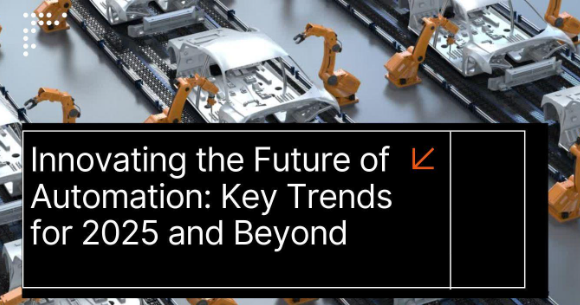
As the world advances towards a new era of automation, emerging trends in intelligent systems are set to revolutionize how businesses operate. According to Devesh Gupta, an expert in automation and technology, we are on the cusp of a transformation driven by innovations like AI, machine learning, IoT, and blockchain integration. This article delves into the future of automation, exploring the advancements that will reshape industries by 2025.
AI and Machine Learning: The Heart of Next-Generation Automation
Artificial intelligence (AI) and machine learning (ML) are at the core of the next generation of automation, elevating systems from simple task execution to ones that learn, adapt, and make complex decisions. By 2025, AI-driven automation is expected to create significant value across industries, optimizing operations, reducing costs, and improving decision-making. The integration of AI and ML will enable predictive automation, where systems foresee future needs and adapt in real-time. For instance, predictive maintenance systems in manufacturing will minimize equipment downtime and extend its lifespan, reducing operational costs and driving efficiency across sectors like healthcare, supply chain management, and manufacturing.
The Convergence of RPA, IoT, and Blockchain: A New Era of Automation
The integration of Robotic Process Automation (RPA) with the Internet of Things (IoT) and blockchain is opening new frontiers in automation, enabling real-time data collection through IoT sensors that feed RPA systems, allowing operations to adjust instantaneously. In smart factories, IoT-driven RPA will enable production lines to adapt automatically to real-time conditions, optimizing output and reducing waste. Simultaneously, blockchain provides a secure framework for automating processes in industries that require high levels of transparency and security. By combining blockchain with RPA, companies can streamline complex tasks like supply chain management or financial transactions, enhancing data integrity, speeding up operations, and reducing the risks of fraud and error.
API-First and Hybrid Integrations: Seamless Connectivity for the Future
System integration is rapidly evolving, with a notable shift towards API-first and hybrid approaches. The API-first methodology allows businesses to develop flexible and scalable automation systems, enabling individual components to be updated or replaced without disrupting the entire system. Meanwhile, hybrid integrations, which combine on-premise systems with cloud solutions, are becoming increasingly important as companies strive to balance data security with the agility of cloud computing. This approach enables businesses to leverage secure, controlled environments for sensitive data while benefiting from the scalability and innovation of cloud-based systems.
Hyper-Automation: The Next Leap Forward
Hyper-automation, which describes the convergence of AI, ML, and RPA, is poised to drive end-to-end automation across entire enterprises by 2025. Businesses will be able to automate interconnected processes spanning multiple departments, achieving unprecedented levels of efficiency and intelligence. In sectors like insurance or finance, hyper-automation could fully automate processes from claim submission to payment processing, reducing labor-intensive tasks, optimizing decision-making, and significantly cutting operational costs.
The Rise of Citizen Developers: Democratizing Automation
As automation tools become more accessible, the rise of “citizen developers” will allow non-technical employees to create their own automation solutions. By using low-code or no-code platforms, these individuals will be able to build tailored automation systems without requiring deep technical knowledge. This democratization of technology is set to accelerate innovation within companies, fostering creativity and allowing departments to customize processes according to their specific needs.
Ethical Automation: A Growing Priority
As automation rapidly expands, ethical considerations are becoming increasingly important, with systems needing to be transparent, fair, and aligned with societal values. Issues such as bias in AI decision-making and privacy concerns must be addressed, requiring businesses to ensure their systems are not only efficient but also ethically sound. Developing AI systems capable of explaining their decisions and implementing safeguards against biases will be crucial. By 2025, companies that successfully balance innovation with ethical standards will be better positioned to earn consumer trust and navigate regulatory landscapes.
As a conclusion, Devesh Gupta emphasizes that the convergence of AI, machine learning, IoT, and blockchain is propelling the next wave of intelligent automation. By adopting trends such as hyper-automation, API-first integration, and ethical considerations, businesses will not only boost efficiency but also build more transparent, adaptable, and secure systems. Looking toward 2025, the organizations that effectively navigate these advancements will be at the forefront of an increasingly digital and interconnected world.








